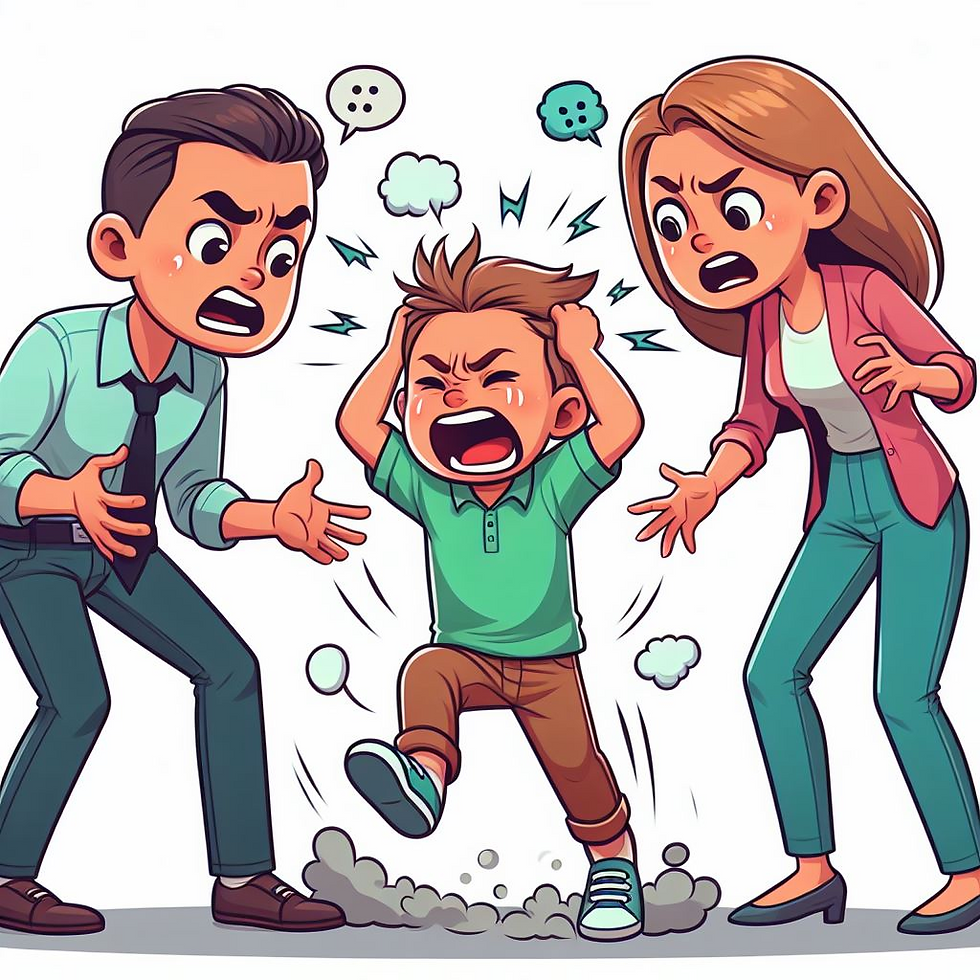#2 PURPOSEFUL PARENTING - Defiance & Disobedience
- Saumya Das

- May 8, 2024
- 2 min read
Defiance and disobedience are common behavioral challenges that many parents face when raising children. Understanding the psychology behind these behaviors, the role of parenting in shaping them, and effective strategies for resolution can lead to positive outcomes for both children and parents. In this blog, we'll delve into the psychology of kids with defiance and disobedience, the factors that contribute to these behaviors, and how proper parenting techniques can lead to positive outcomes.

The Psychology of Kids with Defiance and Disobedience:
Children may display defiance and disobedience for various reasons, including:
Testing Boundaries: Children naturally push boundaries as they assert their independence and explore their environment.
Seeking Autonomy: Defiant behavior can be a way for children to assert their autonomy and control over their environment.
Attention-Seeking: Children may act out in defiance as a way to seek attention or express their frustration.
Parenting and Its Role in Defiance and Disobedience:
Parenting plays a significant role in shaping children's behavior, and several factors can contribute to defiance and disobedience:
Inconsistency: Inconsistent discipline and boundaries can confuse children and lead to defiance.
Overly Permissive Parenting: Lack of structure and discipline can contribute to children's sense of entitlement and defiance.
Negative Reinforcement: Harsh or punitive discipline can lead to resentment and defiance in children.
Factors Contributing to Defiance and Disobedience:
Several factors can contribute to the development of defiance and disobedience in children:
Environment: Stressful or chaotic home environments can contribute to defiant behavior in children.
Modeling Behavior: Children may mimic the behavior of their parents or other significant adults in their lives.
Temperament: Some children may have a naturally strong-willed or defiant temperament, making them more prone to defiance.
Resolving Defiance and Disobedience:
Positive parenting techniques can help resolve defiance and disobedience and promote positive behavior in children. Here are some effective strategies:
Set Clear Expectations: Establish clear rules and expectations for behavior, and communicate them clearly to your child.
Positive Reinforcement: Use praise and positive reinforcement to encourage good behavior.
Consistent Discipline: Be consistent in enforcing rules and consequences for disobedience.
Provide Choices: Offer your child choices within limits to give them a sense of control and autonomy.
Sample Technique: The 1-2-3 Magic Method
One effective parenting technique for managing defiance and disobedience is the 1-2-3 Magic method. Here's how it works:
Count to Three: When your child displays defiant behavior, calmly count to three.
Issue a Warning: Let your child know that if they don't stop the behavior by the time you reach three, there will be a consequence.
Follow Through: If your child continues the behavior, follow through with a consequence, such as a time-out or loss of privileges.
Parenting coaching can provide valuable support and guidance for parents struggling with defiance and disobedience in their children. Platforms like Counsellation offer expert coaching and counseling services tailored to the needs of parents and families.
To discuss Parenting strategies and learn useful parenting techniques, join us for a free webinar every Friday at 5 pm IST -


Comments